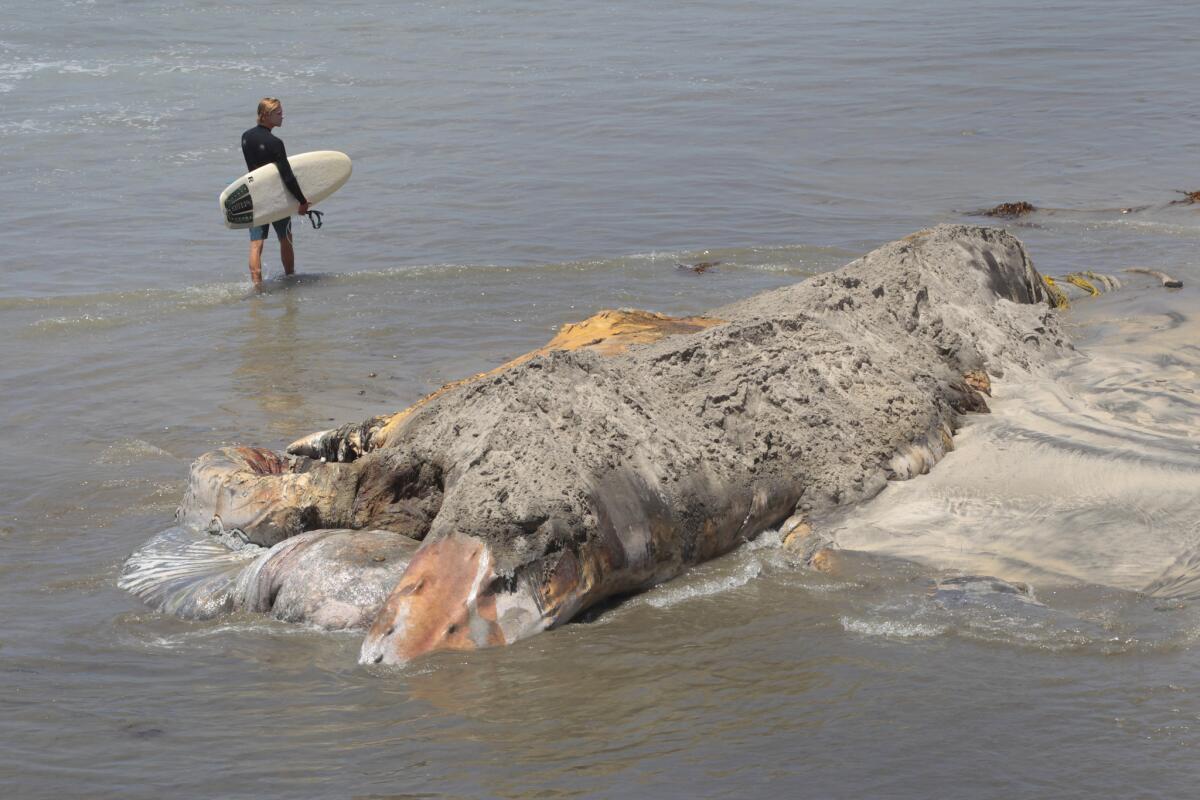Wally the whale’s journey is over as carcass is cut up and removed from Encinitas beach

The last of Wally the wayward whale was removed from Grandview Beach in Encinitas on Monday, two days after the dead humpback washed ashore for what became its final appearance in a two-week odyssey down the Southern California coast.
“We didn’t leave any scraps,” Encinitas Marine Safety Capt. Larry Giles said after the dead animal was cut up and hauled off. “We picked up everything we could. It was decomposing, so there’s oil residue and things like that on the beach.”
Lifeguards chose to hire a local contractor to remove the whale’s carcass rather than tow it out to sea.
“We live in such a populated area that we just have to get (the whale) off the beach,” Giles said.
Join the conversation on Facebook >>
Wally’s body already had been towed at least five times from various places since it first turned up June 30 at Dockweiler State Beach in Los Angeles County. Lifeguards there tugged the 22-ton, 45-foot-long carcass back to the ocean, but it repeatedly reappeared further south as the currents carried it near shore. It was twice towed after floating close to Newport Beach and then again when it got too close to Dana Point and San Clemente.
The carcass washed ashore in San Diego County on Saturday evening near the foot of the Grandview Beach stairs. National Marine Fisheries officials verified it was the remains of Wally, a 15-year-old female that often had been seen over the years spouting off the coast of Orange County. Recently she appeared to be covered in whale lice, an indication of ill health.
Lifeguards said high tides carried the rotting carcass a short distance north toward Ponto Beach on Saturday night.
A contracted construction crew arrived and used chain saws and a specially made large knife, like the head spade used by whalers, to cut the body into several large sections. The pieces were loaded into large construction-size trash bins to be trucked to the Miramar landfill.
Diehl writes for the San Diego Union-Tribune.